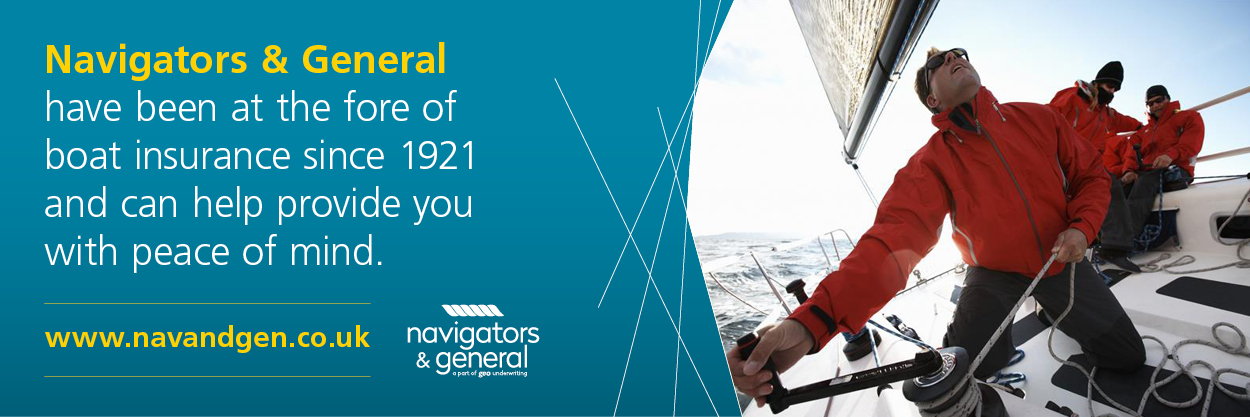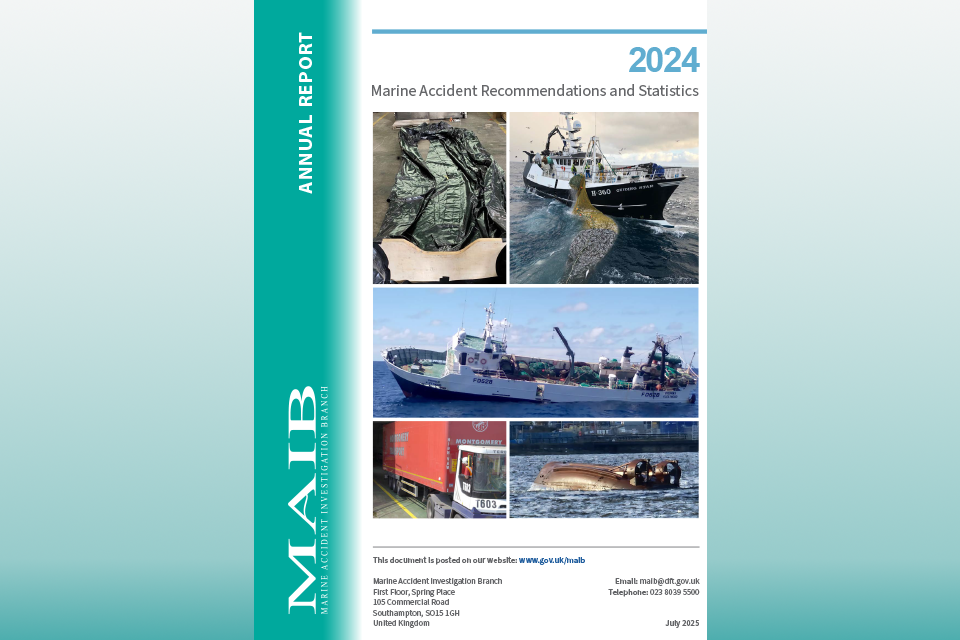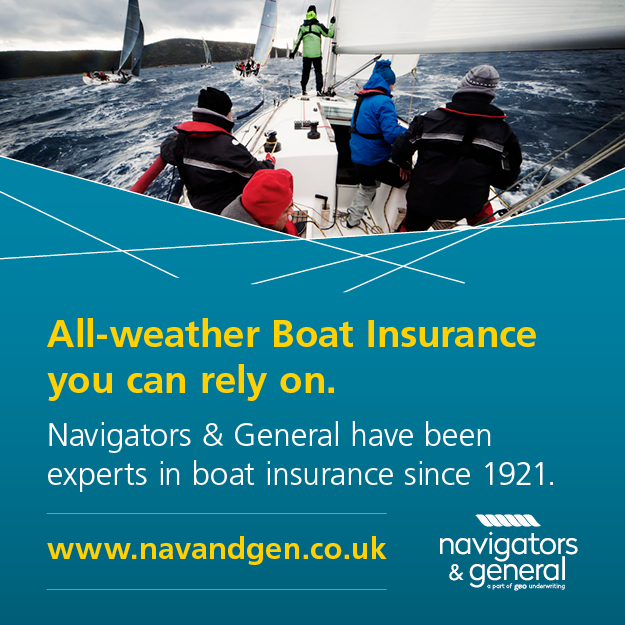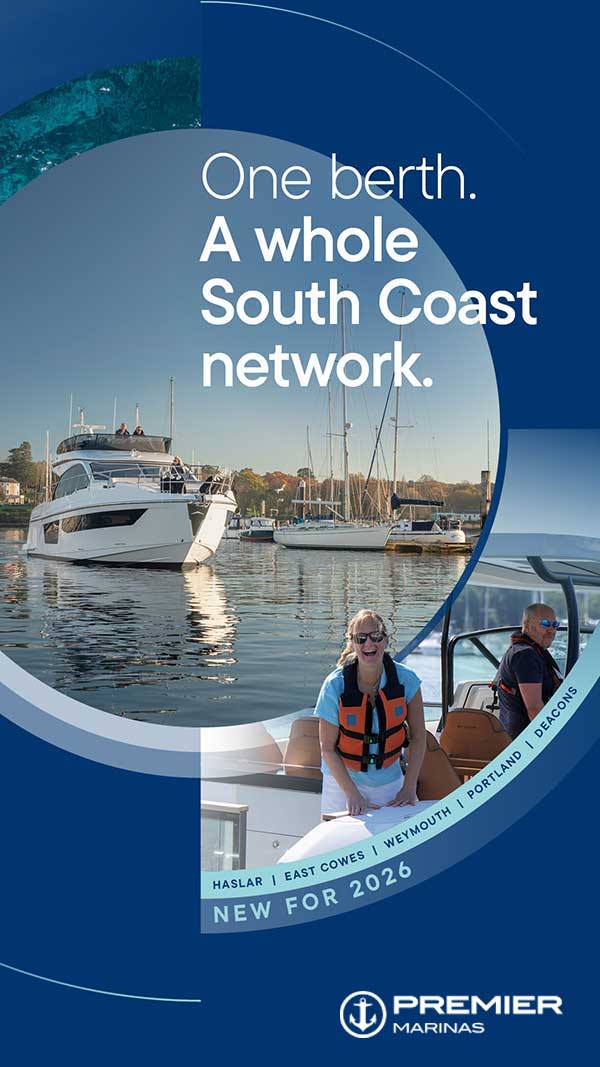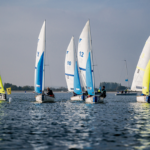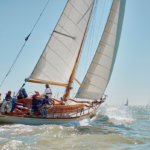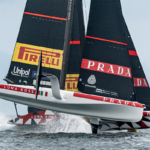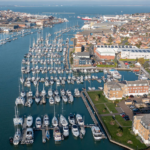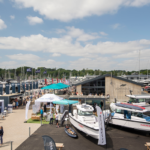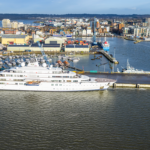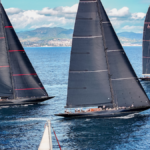The Marine Accident Investigation Branch (MAIB) has published its Annual Report for 2024.
The Annual Report includes statistics on accidents to UK ships and seafarers worldwide, and to foreign flag vessels and their crews in UK waters. It also contains an overview of the work of the MAIB, details of reports published and contains analysis of the safety recommendations issued during the year and the status of outstanding recommendations from previous years.
During 2024, the MAIB:
- Raised 1515 reports of marine accidents involving 1633 vessels
- Commenced 15 investigations, of which 7 involved loss of life.
- 20 reports and 4 safety bulletins were published. This led to 74 recommendations to 36 separate addressees, with an acceptance rate of 85%.
Maritime accident data for occurrences reported to MAIB in 2021, 2022, 2023 and 2024 is available via the MAIB data portal which can be found here.
A statement from the Chief Inspector can be found at the start of the report. Addressing safety issues in involving merchant ships, Andrew Moll, Chief Inspector of Marine Accidents said:
“Significant collisions between and groundings of merchant vessels show no sign of reducing. The fatal collision between Scot Carrier and Karin Høj resulted from poor watchkeeping practices. However, the collision between Scot Explorer and Happy Falcon, the fatal collision between Verity and Polesie and the dramatic and tragic collision of the Solong into the anchored Stena Immaculate earlier this year, indicate a need to radically rethink the role of human watchkeepers in the digital age. Humans do not make good monitors and if under-stimulated they will find other things to occupy themselves.”
Addressing safety issues in involving fishing vessels, Andrew Moll said:
“Three investigations and one preliminary assessment were started into UK fishing vessels flooding/ foundering during 2024. Fortunately, none resulted in the loss of life, but the losses to flooding last year indicates how vulnerable many fishing vessels are to water ingress. Most of the UK fishing fleet have little, if any, watertight subdivision so any appreciable inflow of water can swiftly overwhelm the on-board pumps. In such circumstances, raising the alarm early and being well-practised in abandonment routines can and does save lives.
“As worrying as flooding is the number of deaths and serious injuries resulting from occupational accidents. Two fishing vessel crew died as a result of marine accidents in 2024, the same number as in 2020, with both years being the equal lowest recorded level of fatalities in the last decade. Less positive is that both deaths occurred on well-crewed vessels as a result of unsafe systems of work. Future MAIB investigation reports will likely develop the theme of moving beyond ‘having a risk assessment’ to the proactive management of risk.”
The report can be found here on the MAIB website.






